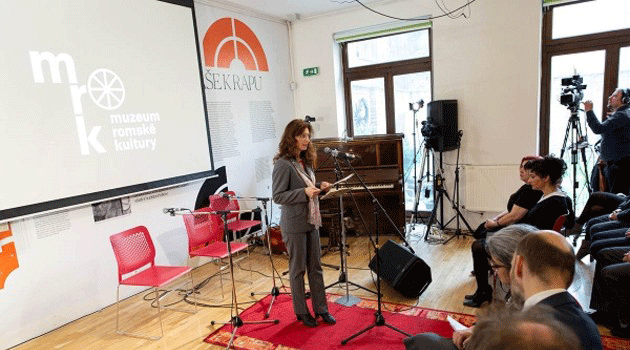Council of Europe Commissioner for Human Rights calls on Czech lower house to adopt law to compensate illegally sterilized people, first reading scheduled for today

The Commissioner for Human Rights at the Council of Europe, Dunja Mijatović, has called on members of the Chamber of Deputies in the Czech Republic to adopt a bill on a first reading today that will compensate those who have been sterilized without their informed choice and consent. “Despite the important step taken when the government recognised the unlawfulness of these sterilisations in 2009, this matter has not yet been resolved,” she wrote in a letter that news server Romea.cz is publishing in full below.
“The bill provides an important opportunity for elected representatives in the Czech Republic to address this historic injustice,” the letter says. The Czech Deputy Public Defender of Rights, Monika Šimůnková, previously called for women who were sterilized against their will to be compensated through the adoption of such a mechanism.
An open letter calling on MPs to give the bill a first reading was recently signed by 150 figures and an additional 93 have signed it as an online petition. MPs have added a first reading of the bill to the ongoing 58th session of the lower house and it should be discussed this afternoon.
Letter by Commissioner for Human Rights at the Council of Europe Dunja Mijatović to the Chamber of Deputies of the Czech Republic
Strasbourg, 25 September 2020
Dear Speaker, Dear Members of the Chamber of Deputies,
As Council of Europe Commissioner for Human Rights, my mandate is to contribute to the effective observance of human rights in all 47 member states of the Council of Europe. An important part of my work in this respect is to engage in dialogue with the governments and parliaments of member states, and help them address possible human rights issues in their laws or practices.
I am writing to you regarding the Proposal for a law for a one-time financial compensation for persons who were the victim of unlawful sterilisation (draft law no. 603). It is my understanding that this bill is now awaiting its first reading.
My Office started engaging with the Czech authorities on the issue of forced and coercive sterilisations, which were particularly carried out on Roma women, a decade and a half ago. Since then, each of my predecessors has emphasised the need for redress and adequate compensation for victims, for the removal of barriers to such compensation, and the setting up of appropriate compensation mechanisms. Despite the important step taken when the government recognised the unlawfulness of these sterilisations in 2009, this matter has not yet been resolved. The bill provides an important opportunity for elected representatives in the Czech Republic to address this historic injustice.
Practices of forced and coercive sterilisation constitute serious human rights violations that have an impact on many aspects of the individual’s personal integrity, dignity and right to private and family life. The Council of Europe’s Committee of Ministers 2011 Guidelines on eradicating impunity for serious human rights violations also state that member states should take all appropriate measures to establish accessible and effective mechanisms which ensure that victims receive prompt and adequate reparation for the harm suffered.
Although the harm inflicted on the victims, both physically and mentally, can never be undone, establishing a fair, accessible and adequate compensation mechanism would provide these women with a measure of justice that has eluded them for such a long time. Considering the time that has already passed, I agree entirely with the view expressed by the Deputy Ombudswoman, as well as many others, that this bill may present a last opportunity to deliver justice to the victims, and that this opportunity should not be wasted.
In addition to what this bill may mean for the victims themselves, resolving this long-standing issue would be a sign of the Czech Republic’s wider commitment to protecting women’s rights. It would also be an important acknowledgment of the difficulties the victims, in particular Roma women, have experienced in having their voices heard and their concerns recognised. In this respect, I note that trust and good community relationships in societies cannot be built on a history of human rights violations that remain unaddressed.
I therefore call on all members of the Chamber of Deputies to ensure that the consideration of this bill extends beyond the first reading, and that a fair and adequate mechanism for compensation can be established quickly. I would be grateful if you could ensure that all Deputies receive a copy of this letter, especially the members of the Steering Committee.
Sincerely,
Dunja Mijatović
